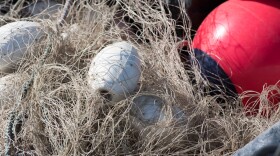As the king salmon run comes to an end on the Kuskokwim River, fewer fishermen are out on the water. Some families in the Y-K Delta are nearing the end of their harvests, while others are just beginning or are not able to fish.
Surveyors estimated that only 211 total drifts occurred during the most recent July 2 fishing opening on the lower Kuskokwim River. That’s fewer than occurred during the controversial state opening on June 28, and less than half the number that occurred on the opener before that.
Kuskokwim River Salmon Management Working Group member Avery Hoffman said in a meeting on July 7 that the river looked noticeably emptier when he was fishing during the last opener.
“It seemed as if everyone is slowing down fishing, and not as many people are going out,” Hoffman said.
Still, the fishermen who did participate in the recent opener caught a lot of fish. An estimated 11,460 salmon were harvested, with 78% of those being sockeye salmon.
Chum numbers remain at record lows, and state biologist Sean Larson said that the king run, which is looking similar to last year’s low run, is winding down.
“We're at the tail end of the run right now. And it's likely going to be largely complete by the end of the week, next week,” Larson said.
Even though many families’ smokehouses are getting full, some are just beginning to fish. Some fishermen told the state’s working group they sat out the entire king salmon run to aid conservation efforts.
Meanwhile, fishermen up on the Yukon River face an even more dire situation. They are unable to fish at all because king and chum salmon numbers there are so low. Kuskokwim River Salmon Management Working Group members discussed an effort to transport Kuskokwim salmon to communities along the lower Yukon. Federal managers even offered to fly the salmon north using U.S. Fish and Wildlife Service planes. Working group members did not come to a consensus on how to transport enough salmon in fresh condition.





